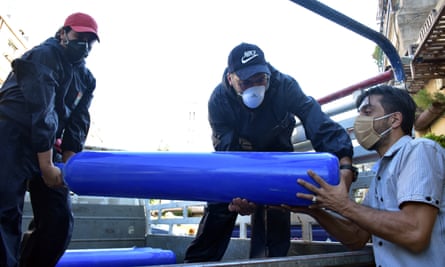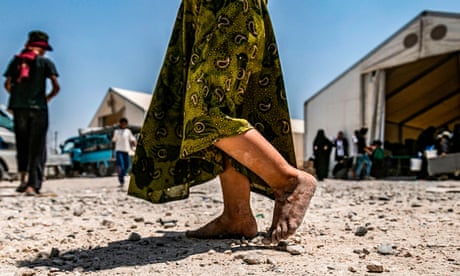I work as a medic in Syria, where an unreported Covid-19 crisis is unfolding
I am a frontline healthcare professional working in a large public hospital in Syria. The country is facing an overwhelming but under-reported Covid-19 crisis among a population already beaten down by almost a decade of conflict and economic turmoil. I and my colleagues feel helpless and expect the worst.
Our nurses and doctors are suffering from a dangerous shortage of medical supplies, personal protective equipment (PPE) and testing. Hospitals in Damascus, Aleppo, Homs and other cities across the country are overcrowded and lack the basic instruments to deal with a pandemic at such scale due to the long war, poor planning and mismanagement.
Over the past weeks, the numbers of coronavirus infections and deaths have rapidly increased and are far higher than the official figures of the Syrian government or the World Health Organization. The official numbers were only 1,593 cases and 60 deaths as of 16 August. None of us believe these figures to be accurate.
The deputy director of health for Damascus estimated the real number of Covid cases to be 112,500 in the Damascus area alone. We have hundreds of unconfirmed coronavirus-related deaths every day. Aleppo hospitals are running out of body bags.
Every day, the list of healthcare providers who have died from the virus gets longer. We are asked to purchase our own PPE.
We are treating patients in dirty rooms without enough medication and with little equipment to protect ourselves. Our hospitals are working at over-capacity, with beds and ventilators already occupied. We have the heartbreaking job of turning patients away because there is nothing we can do to help them. As doctors, this is our worst nightmare.
Healthcare providers are unable to speak out and voice our concerns. Government minders watch what we say and what we write on our social media. We are scared to share information about the disease spread and treatment with each other. We are scared of the pandemic and scared of the consequences of speaking out.
Many patients with symptoms now prefer to stay at home than to seek medical care, and people are trying to buy their own oxygen and ventilators, or hope for the best without any care at all. We see patients lying in the streets crying for help.
Only 300 tests are being performed a day in only five government-run centres. Like everything in Syria, those who have connections and enough money have easier access to testing than those who don’t.
The early lockdown was reversed without clear reasons, which sent the wrong message to the public. Masks are expensive. People are not abiding by social distancing and masking. People are left with no choice but to open their businesses and go out to work, which is increasing the spread of the virus.
We have no choice but to appeal once again to the world’s conscience. I ask the government and the WHO office in Syria to be transparent: we need to figure out the the true extent of Covid infections in our country. Hiding the real number of cases and deaths will simply cause more loss of life.
I appeal to the international community and UN agencies to take urgent measures to support our hospitals, local organisations and the healthcare system by providing more testing capacity, PCR machines, testing kits, medication, PPE, medical supplies, oxygen machines and ventilators. I understand that medical and humanitarian support is exempted from any international sanctions.
I urge UN agencies and local health authorities to ensure that distributing life-saving medical supplies is based on a transparent process of needs, monitoring and evaluation without any delay or bottlenecks.
Syria is on the brink of an unprecedented catastrophe. I ask those in power to listen before it is too lat


Kommentare
Kommentar veröffentlichen